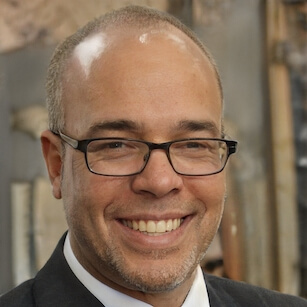Be Specific About Your Expertise
Stating your expertise in areas like Performance Management, Employee Benefits, & Conflict Resolution gives a clear picture of what you bring to the table. This helps others understand your capabilities better.
Approved by LinkedIn experts and recruiters, these HR Professional LinkedIn headlines will make sure you attract the right prospects and recruiters to your profile. Optimized for 2026's LinkedIn algorithms.

Stating your expertise in areas like Performance Management, Employee Benefits, & Conflict Resolution gives a clear picture of what you bring to the table. This helps others understand your capabilities better.

When you outline key areas of your expertise like 'Employment Law, Talent Acquisition, HR Policies', you are showcasing your knowledge and proficiency, which can make you more appealing to potential employers.
Stating that you're 'experienced in fostering positive work environments' adds a dimension of emotional intelligence to your profile. It shows you're not just about policy but also about people, and that's crucial in a field like HR.

Claiming your niche in areas like HR Technology, Labour Relations & Organizational Development, can make your profile more appealing. It tells potential employers or clients not just what you do, but how you have specialized your skills.
Stating your commitment to creating diverse & inclusive workplaces gives a sense of your values. It speaks volumes about what you stand for and can attract like-minded professionals or organizations.
Mentioning your past role at a reputable company such as Hilton Hotels boosts your credibility. It serves as a testament of your skills and the trust placed in you by notable organizations.

Specializing in 'Training and Development, HR Analytics' shows you're up to date with current trends in HR. These areas are highly relevant in today's data-driven, fast-changing world of work. It makes you more appealing to modern, forward-thinking companies.
By stating you've 'Transformed underperforming teams', you're positioning yourself as a change agent. It shows you're not just about maintaining the status quo, but about driving improvement and making a real difference.

By mentioning 'Managing Employee Relations, Compensation, and Benefits', you're positioning yourself as someone who deals with strategic HR tasks, not just admin work. It gives a sense of your capabilities and the level of responsibilities you can handle.
Identifying yourself explicitly as an 'HR Professional' is a good move. It places you firmly in your chosen field and makes it easier for others in the same field to find and connect with you.
Mentioning your previous role as an 'HR Manager at Oracle' serves as a proof of your professional standing and experience. It shows you've handled responsibilities in a well-known company, which adds weight to your profile.

Highlighting skills in HRIS, Onboarding, and HCM reveals you're comfortable with technology in HR. In this digital age, HR tech skills are a big plus. It increases your chances of being spotted by recruiters hunting for tech-savvy HR professionals.
Stating that you 'Increased retention rates by 15% in a previous role' is a powerful statement. It shows you're result-oriented and have a track record of making a positive impact. Plus, it's a quantifiable achievement, and numbers always catch the eye.

'7+ years handling HR Management' gives an immediate sense of your experience level, which can be a key factor for recruiters and hiring managers. It shows that you've likely encountered and solved a variety of HR challenges.
Listing 'Recruitment, Labor Relations, Performance Management' as your core skills, shows recruiters that you have wide-ranging HR capabilities. It also helps with searchability, as these are common keywords in HR job descriptions.
Stating 'Prev: HR Associate at IBM' can impress potential employers by showcasing that you've worked at a reputed company. It also helps to establish a career trajectory, showing that you've progressed in your HR career.

Highlighting your focus on Training & Development, Workforce Planning & Career Development draws attention to your specific interests within the HR field. It can attract connections who value these same areas.
Asserting your advocacy for employee rights and labor laws gives a sense of your character. It can resonate with like-minded individuals and organizations.

Outlining your expertise in Change Management, HR Policies & Compliance, is like setting out your stall. It can help people quickly understand your areas of strength.
Mentioning your prior experience at Amazon can increase your credibility. LinkedIn users often use company names as keywords when searching, so this can boost your visibility.

Identifying yourself as a Recruitment & Retention Specialist establishes your unique focus within the HR field. This can catch the attention of those who are specifically looking for this skill set.
Listing unique skills, such as Implementation of HRIS systems & Employee Onboarding, lets your audience know the specific areas you handle. It can help you appear in searches for these terms.
Referencing your past role managing HR operations at IBM adds weight to your profile. It showcases your experience handling HR at a large, reputable company.

Listing 'Strategic HR' and 'HR Leadership' as your skills showcases your ability to steer an HR team in the right direction. This is particularly important for a senior HR role and can attract companies looking for a seasoned HR leader.
Expressing passion for leading teams towards success can connect with potential employers on an emotional level. This can create a positive impression and make your profile memorable.

As an entry-level professional, it's crucial to highlight your skills like 'Employee Onboarding, HR Administration & HR Software Tools'. It reassures potential employers that you have the needed skills to hit the ground running.
As a newbie, your eagerness to contribute like 'building engaged and dynamic teams' signals to potential employers your readiness to jump in. It shows that you aren't just looking for a job, but a space to make a difference.

Highlighting skills like 'Global HRM' or 'Talent Acquisition' right at the start of your headline ensures that these key skills are not overlooked. It also improves your visibility in LinkedIn search results when these skills are used as search criteria.
Sharing an achievement like "Fostered international team collaboration" serves as a teaser for your profile, inviting others to learn more about how you've made a difference. This can serve as a compelling reason for others to engage with you further.

Focusing on areas like 'Staffing' and 'HR Reporting' showcases your administrative skills. This signals to potential employers that you have a handle on the day-to-day tasks of this role. It makes you an attractive prospect for an employer who values efficiency in their HR operations.

Being 'known for streamlining HR Workflows, HRIS Management & Employee Records Management' sets you apart as someone who's not only skilled, but also has a proven track record. This can enhance your credibility and make you an attractive candidate for employers in need of experienced HR professionals.
When you say, 'I strive to develop a collaborative and transparent work culture', you're showing that you're proactive and goal-oriented. This can resonate with employers who prioritize a collaborative culture and transparency in their organizations.

Using your current job title, like 'HR Advisor', as a keyword in your headline increases your visibility in search results. This is because LinkedIn's algorithm gives weight to job titles. Moreover, recruiters often search by job titles to find potential candidates. So, make sure to include your current or targeted job title in your headline.
Stating your expertise in areas like 'HR Legislation' and 'Employment Law' is a smart move. This highlights your ability to navigate the legal aspects of HR, which is a key requirement in this role. It also gives a hint of your potential value to a company needing help with legal compliance.

By stating "HR Analyst" straightaway in your headline, you direct your profile towards the right audience. Being upfront about your role also increases your chances of appearing in search results for that job.
Listing skills like "HRIS Analysis" or "Performance Management" right in the headline makes it easier for recruiters or potential collaborators to spot your expertise. It also increases your visibility on LinkedIn for these specific skills.

Listing specific HR skills like 'HR Services', 'Background Checks', or 'HR Filing' gives a clear picture of your competencies. It's like dangling a bait for recruiters who are searching for these keywords on LinkedIn. Also, it's a subtle way of saying that you're hands-on and know your way around daily HR tasks.
Adding a line about your commitment to 'employee well-being and company growth' shows you're a person who cares. It sets you apart as someone who understands the human element in HR and is just as committed to the company's growth as they are to its people.

Identifying yourself as an "HR Business Partner" in your LinkedIn headline immediately positions you for the job roles you are targeting. It not only clarifies your role but also helps you get noticed in LinkedIn searches related to this job title.
Stating specializations like "Change Management" or "HR Metrics" showcases your unique skill set. It adds more depth to your profile, making you more appealing to potential employers or partners seeking these specific skills.

As a 'HR Consultant', it's vital to state your title explicitly. It helps define your professional identity and sends a clear message to those who view your profile about your specific niche in HR.
Stating 'Expertise in HR Policies, HR Consulting, Labor Law' packs a punch. It indicates the depth of your knowledge and the value you can bring to potential clients, which can be more persuasive than generic phrases.

When you mention 'extensive experience in HR Process Improvements, HR Auditing & HR Metrics', you're showing potential employers that you're not just familiar with these areas, but you have a deep and wide-ranging understanding of them. This can be especially appealing to organizations looking for a strategic HR partner.
Communicating your commitment to 'fostering employee engagement & morale' suggests that you understand the connection between employee satisfaction and business success. It can attract employers who value the well-being of their employees and understand its impact on productivity.

Zeroing in on any specialization you have, like 'Employee Retention', makes your profile more attractive to specific roles. Companies looking for an HR Coordinator who knows HRIS inside out will appreciate this focus. It also helps you show up in LinkedIn search results when a recruiter is hunting for that specific skill set.

Listing your proficiency in HRMS, Payroll Processing, and HR Documentation doesn't just show your technical abilities, it also helps you catch the eye of recruiters who are scanning for those keywords. Plus, it gives a clear indication of your functional areas of expertise within the HR field.
A philosophy, like 'creating a positive work environment through active HR initiatives', can say a lot about your approach to HR. It suggests you're proactive, value-driven and conscious of the impact HR can have on a company’s culture. This can resonate with organizations that share your philosophy, making them more inclined to connect with you.

Being 'Accomplished in Leadership Development, HR Budgeting & HR Policies' sets you apart as a seasoned HR director. It highlights your ability to handle advanced HR tasks and gives a sense of the strategic value you can bring to a company.
Stating your belief in 'creating workplaces where talent can thrive' gives a sense of your HR philosophy. It shows you're focused on creating a positive work environment where people can do their best work, which is a value any company would appreciate.

Your role, like "HR Director", is the first thing that most people will read in your headline. This immediately introduces your level of seniority and your area of expertise. This is especially helpful for those actively seeking jobs or networking as recruiters and professionals will identify your position instantly.
Including specific skills like 'Succession Planning” or “HR Compliance” shows that you're not just a generalist, but have particular expertise. This can increase your profile’s visibility in LinkedIn search results when recruiters search for these skills. It also conveys your full worth to anyone reading your profile, increasing the chance that they'll want to learn more about you.

Listing specific skills like 'HR Planning, Employee Retention Strategies and HR Compliance' shows you’ve got the goods. It will attract recruiters who need these skills, and also ups your chances of appearing in LinkedIn search results when someone searches for those skills.
By mentioning a mission like 'building a culture of productivity & satisfaction', you let potential employers know your drive, passion, and what you want to achieve in your role. It's a unique touch that can resonate with the right employer.

By mentioning expertise areas like "HR Planning" or "Performance Metrics", you immediately showcase your specialities. This gives a quick snapshot of what you bring to the table, which can resonate with recruiters or potential connections looking for these specific skills.

Labeling yourself an 'Expert' in Performance Evaluations, Employment Laws & HR Best Practices instantly gives you credibility. It shows you're not just familiar with these areas, but have a deep understanding and expertise in them. This can be very appealing to hiring managers looking for seasoned professionals.
Stating your goal to 'drive HR initiatives that support business success' clearly shows you understand the strategic role of HR. It's a strong signal that you're not just about administration, but about contributing to the company's success.

Emphasizing expertise in 'Employee Wellness' and 'Employee Retention' shows that you care about creating a positive work environment. This can resonate strongly with companies that value employee well-being and retention.

Stating your current role 'HR Manager' in the headline is straightforward and effective. It tells everyone who you are and what you do, which is especially crucial when networking or job hunting.
'10+ years of experience in HR Operations, HRMS, and Organizational Development' is a powerful statement. It succinctly communicates your level of expertise and the breadth of your knowledge, making you an attractive prospect for senior roles.

By stating proficiency in 'HR Operations, Compensation & Benefits, and HR Software', you're showing that you have a wide range of skills and can handle various aspects of HR. This can make you a solid candidate for roles that require multitasking and juggling different HR responsibilities.
Your passion for 'developing systems that enhance employee performance' suggests a strategic mindset and a focus on results. This could make you a compelling candidate for organizations that value data-driven decision-making and employee development.

Flagging your current or targeted title, like 'HR Officer', helps you stand out in LinkedIn searches. Recruiters who are looking for HR Officers are more likely to find you, increasing your chances of being approached for potential opportunities.
Detailing your proficiency in 'HR Compliance' and 'HR Audit' is a smart move. This communicates your ability to ensure that the company stays in line with labor laws. This could be a major draw for potential employers who value compliance.

Listing areas of proficiency like "HR Transformation" or "Employee Relations" gives an immediate overview of your skill set, helping you attract the right opportunities. It increases your chances of being found when these skills are used as search keywords.
Statements like "Dedicated to creating supportive company cultures" are a fantastic way to show your personal commitment. It gives a hint of your working style and ethos, which can help draw in like-minded professionals or companies.

Outlining your specializations like 'Employee Relations, HR Consultancy & HR Strategy Development' can increase your visibility in LinkedIn searches and inform potential employers about your areas of interest and expertise in the HR field.
Stating your passion for 'building better workplaces' not only shows your dedication to your work, but also implies a level of emotional intelligence and an understanding of the value of a positive work environment. This can attract employers that prioritize culture and employee satisfaction.

Mentioning areas of specialization like 'Strategic HR, Employee Engagement, Workforce Planning' can set you apart from other HR pros. It helps potential employers or partners identify you as the right fit for specific roles or projects.

Showing your specialization in HR Analytics, Succession Planning & Talent Management makes you more attractive to specific roles or projects that demand these skills. This can increase your chances of being found in searches for these skills.
Expressing your commitment to aligning business objectives with HR needs shows that you understand the strategic role of HR. It can make you more attractive to organizations that value this approach.
In just 10 seconds, our free AI-powered tool will give you personalized feedback on your LinkedIn profile.
Join over 100,000 people and learn exactly how to get five times more opportunities on LinkedIn.
Optimize My Profile
"My free resume review was truly eye-opening. I found out why I wasn't getting interviews and exactly what to add to get past resume screeners. I've already had way more callbacks since I used it. I recommend it to all my friends who are job searching."

"Probably the best thing I've done this year. Showed me what my strengths were and the jobs and industries I should be focusing on. The most impactful part though was how it identified this spiral I'd been doing subconsciously - yikes, freakishly accurate."

Thank you for the checklist! I realized I was making so many mistakes on my resume that I've now fixed. I'm much more confident in my resume now.
Passion Drives Engagement
Expressing passion about fostering company cultures can be a magnet for like-minded HR professionals and companies. It shows your drive and dedication in this field.